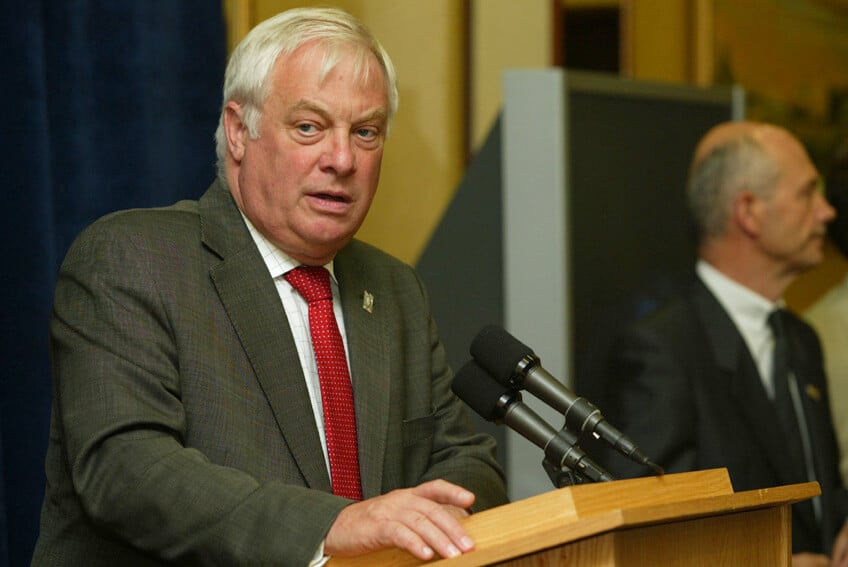Of all the reckless actions US President Donald Trump has taken since the start of his second term, none is more dangerous than his attempt to force Ukraine to accept what he calls a “peace deal.”
Trump’s initial 28-point “plan” for ending the war in Ukraine – reportedly drafted by US special envoy and real-estate developer Steve Witkoff together with Kirill Dmitriev, the head of Russia’s sovereign wealth fund – reads like a Kremlin wish list, capitulating to Russian President Vladimir Putin’s every demand.
US and Ukrainian negotiators have since “refined” the document, but Trump’s pro-Russia proposal, and his threat to leave Ukrainian President Volodymyr Zelensky to “fight his little heart out” if he does not accept the terms, should set off alarm bells across Europe and beyond.
Any reasonable observer could see that Trump’s so-called plan was a non-starter.
Demanding that Ukraine cede its territory – not only regions currently occupied by Russia but also those still under Ukrainian control – was a brazen display of contempt for the rule of law, the rules-based international order, and Europe.
The plan would also have gutted Ukraine’s ability to defend itself. As former US ambassador to NATO Kurt Volker observed, this “half-baked” plan was “destined to be stillborn.”
Europe cannot afford to let its guard down
But even as negotiators continue to revise the terms, and despite Ukraine’s cautiously optimistic tone, Europe cannot afford to let its guard down.
If Putin is allowed to get away with stealing Ukraine’s territory, the security and sovereignty of every country on NATO’s eastern flank – from the Baltic to the Black Sea – will be at risk.
And given that Russia is already waging hybrid warfare to destabilize these countries, as the attempted sabotage of Poland’s railway showed, this threat is hardly hypothetical.
The UK and the EU must make clear that they will support Ukraine in opposing any deal that jeopardizes its security
To prevent Putin from normalizing territorial conquest, the United Kingdom and the European Union must make clear that they will support Ukraine in opposing any deal that jeopardizes its security.
Trump may retaliate by imposing new tariffs or scaling back military cooperation, but the harsh truth is that Europe will eventually face the same stark choice confronting Ukraine today: acquiesce to Putin’s lawless demands or stand up to him.
Strategic rethinking
This underscores the urgent need for strategic rethinking. Flattering Trump, as UK Prime Minister Keir Starmer attempted, has clearly failed.
With Trump, as with any bully, the more you shine his shoes, the more he expects you to kneel.
There are, however, some encouraging signs that US Republicans have rediscovered their spines, most notably by defying Trump and insisting on the release of the Justice Department’s files concerning convicted pedophile Jeffrey Epstein’s sex-trafficking ring.
Atlanticist Republicans in Congress must seize the current moment to affirm that betraying Ukraine – like suppressing the Epstein files – is simply unacceptable.
But Europeans, whose security is directly at stake, should not expect Republicans to stand up for them.
Tolerating tariffs is one thing; consigning an independent, if imperfect, democracy to Kremlin control would be tantamount to a 21st-century version of the 1938 Munich Agreement.
With each passing day, the claims that Trump is a fascist – made even by his former allies and confidants – become harder to dismiss
As with Munich, appeasing Trump has another, even more disturbing consequence: it emboldens a leader with unmistakable authoritarian tendencies.
With each passing day, the claims that Trump is a fascist – made even by his former allies and confidants – become harder to dismiss.
His belief in democracy is conditional at best, and there is no evidence that he accepts any constraints on his power.
Over the past ten months, he has repeatedly sought to weaponize the law against critics and opponents, attacked and sued independent law firms simply for representing clients whose interests diverge from his own, and targeted media outlets and universities.
Why should anyone still consider Trump the leader of the West?
All this raises a fundamental question: Why should anyone still consider Trump the leader of the West?
From the end of World War II until Trump’s election in 2016, America’s status was largely unchallenged.
 Few in Europe or the Commonwealth can plausibly claim that their values resemble Trump’s in any meaningful way - Chris Patten
Few in Europe or the Commonwealth can plausibly claim that their values resemble Trump’s in any meaningful way - Chris Patten
Yet it rested on the fact that US presidents – from Dwight D. Eisenhower in the 1950s to Joe Biden – consistently embodied the values and ideals shared by democracies around the world.
Trump, America’s worst postwar president, rejects those values outright, believing in nothing but self-enrichment.
Few in Europe or the Commonwealth can plausibly claim that their values resemble Trump’s in any meaningful way. I say this with great reluctance, as a lifelong admirer of the US.
My first political experience was campaigning for a Republican candidate in a New York mayoral race – at a time when Republicans still championed free trade, multilateral cooperation, and civil rights.
Back then, no one felt compelled to “make America great again” because it already was, and the world – including its communist rivals – knew it.
Of course, that was before the clueless, principle-free Trump years. If the worst comes to pass and Ukraine is truly betrayed, America may never recover the global respect it once enjoyed.
Liberal democracies, for their part, would do well to heed the wisdom of Adlai Stevenson, a two-time Democratic presidential candidate and US Ambassador to the United Nations between 1961 and 1965: democracies must be prepared not only to fight for their values but also to live up to them.
Chris Patten, the last British governor of Hong Kong and a former EU commissioner for external affairs, is a former chancellor of the University of Oxford.